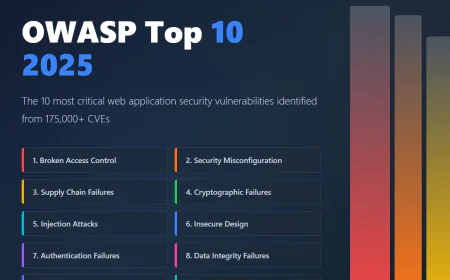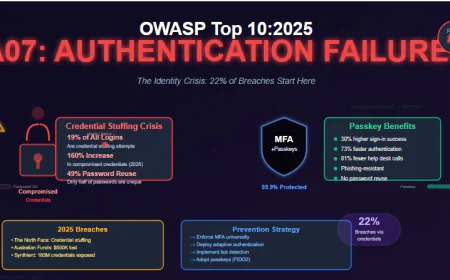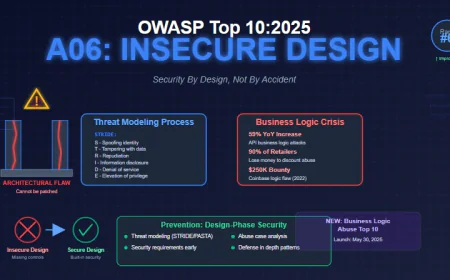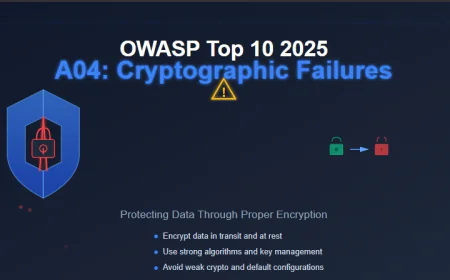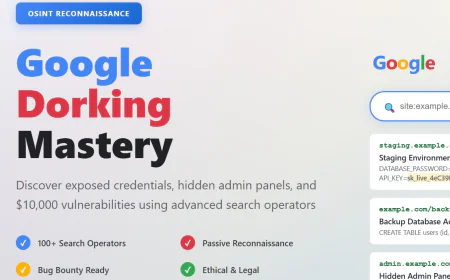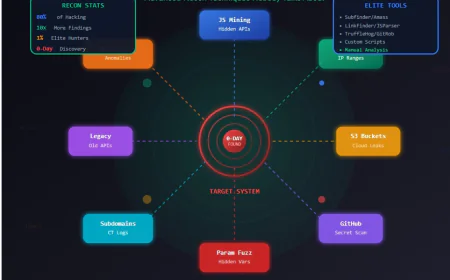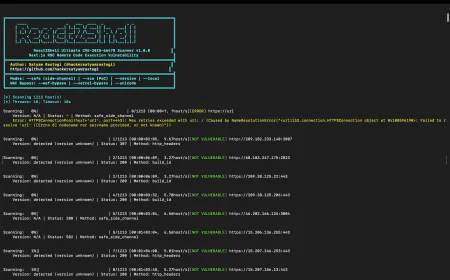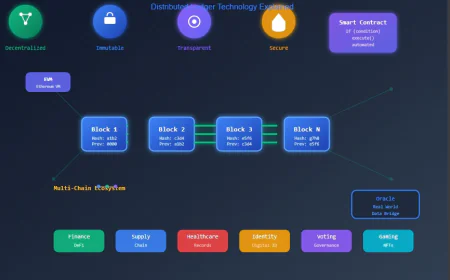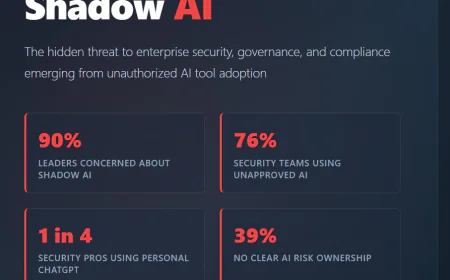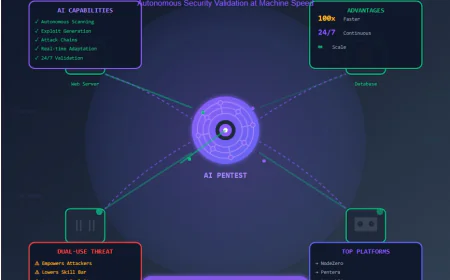Massive NPM Supply Chain Attack: 2 Billion Weekly Downloads Compromised Through Phishing
A sophisticated phishing attack compromised Josh Junon's NPM account, leading to malicious versions of 18 popular packages with over 2 billion combined weekly downloads, targeting crypto wallets and hijacking transactions through obfuscated malware. Breaking: Major NPM supply chain attack compromises popular packages like chalk, debug, and ansi-styles with 2B+ weekly downloads. Crypto wallet targeting malware injected via phishing attack on maintainer Josh Junon's account.

The JavaScript ecosystem was rocked today by one of the most significant supply chain attacks in NPM's history. A sophisticated phishing campaign successfully compromised the account of respected open-source maintainer Josh Junon (known as Qix), leading to the injection of malicious code into 18 widely-used packages with a staggering combined total of over 2 billion weekly downloads.
This attack represents a perfect storm of social engineering, technical sophistication, and the inherent vulnerabilities in our modern dependency management systems. Every JavaScript developer and DevOps engineer needs to understand what happened, how to protect their projects, and what this means for the future of open-source security.
The Attack Vector: A Textbook Phishing Success
Josh Junon, a respected maintainer with years of contributions to the JavaScript ecosystem, became the target of a carefully crafted phishing attack. The attackers sent a convincing email disguised as a legitimate 2FA reset notification, successfully tricking him into compromising his own account security.
This wasn't a brute force attack or a sophisticated zero-day exploit—it was good old-fashioned social engineering executed with devastating precision. The attackers understood that the most secure systems are only as strong as their human operators, and they exploited that fundamental weakness with surgical accuracy.
Key Point: The GitHub repositories remained completely safe throughout this incident. Only the NPM releases were compromised, highlighting the distinct security boundaries between code repositories and package distribution systems.
The Scope: An Ecosystem-Wide Crisis
The scale of this attack cannot be overstated. The compromised packages form the backbone of the JavaScript ecosystem:
Most Heavily Impacted Packages:
[email protected] - ~371M downloads/week [email protected] - ~358M downloads/week
[email protected] - ~300M downloads/week [email protected] - ~287M downloads/week [email protected] - ~261M downloads/week [email protected] - ~244M downloads/week
Additional Compromised Packages:
- [email protected] - ~198M downloads/week
- [email protected] - ~194M downloads/week
- [email protected] - ~192M downloads/week
- [email protected] - ~74M downloads/week
- [email protected] - ~60M downloads/week
- [email protected] - tens of millions (often bundled)
- [email protected] - ~27M downloads/week
- [email protected] - ~26M downloads/week
- [email protected] - ~19M downloads/week
- [email protected] - ~12M downloads/week
- [email protected] - ~3.9M downloads/week
- [email protected] - ~0.26M downloads/week
These aren't obscure libraries—they're fundamental building blocks that appear as deep dependencies in thousands of projects. Even if you've never directly imported chalk or debug, there's a high probability they're somewhere in your dependency tree, powering the colorful terminal output and debugging capabilities that developers rely on daily.
The Malware: Sophisticated Crypto Theft Operation
The malicious code injected into these packages was far from amateur-hour script kiddie work. Analysis of the obfuscated payload reveals a sophisticated, multi-vector attack specifically designed to target cryptocurrency operations:
Primary Attack Vectors:
1. Wallet Interface Hijacking:
- Hooked directly into
window.ethereumobject - Targeted popular wallets: MetaMask, Phantom, and others
- Intercepted wallet API calls in real-time
2. Address Replacement Attack:
- Systematically replaced legitimate cryptocurrency addresses
- Supported multiple currencies: Bitcoin, Ethereum, Solana, Tron, Litecoin, Bitcoin Cash
- Used attacker-controlled addresses for fund redirection
3. Transaction Hijacking:
- Modified
eth_sendTransactioncalls - Silently redirected funds to attacker addresses
- Operated transparently to avoid detection
4. Visual Deception Techniques:
- Employed Levenshtein distance algorithms
- Swapped addresses with visually similar alternatives
- Made detection by casual observation nearly impossible
Dual-Mode Operation:
The malware operated on two levels:
Passive Interception: Monitored and replaced addresses in API requests and responses Active Manipulation: Directly hijacked wallet transactions during execution
This two-pronged approach maximized the attack's effectiveness while minimizing the chances of detection through normal user interaction.
Immediate Response Actions: What You Must Do Now
Time is critical. If your systems are potentially affected, you need to act immediately:
1. Emergency Dependency Audit
Check your lockfiles immediately:
# Check package-lock.json for compromised versions
grep -E "(ansi-styles|debug|chalk|supports-color|strip-ansi|ansi-regex)" package-lock.json
# Check yarn.lock if using Yarn
grep -E "(ansi-styles|debug|chalk|supports-color|strip-ansi|ansi-regex)" yarn.lock
2. Switch to Deterministic Builds
Immediately switch to npm ci in all CI/CD pipelines:
# Replace npm install with
npm ci
This ensures your builds use exact versions from lockfiles, preventing automatic updates to compromised versions.
3. Implement Package Overrides
Add explicit version overrides to your package.json:
{
"overrides": {
"ansi-styles": "6.2.1",
"debug": "4.4.1",
"chalk": "5.6.0",
"supports-color": "10.2.0",
"strip-ansi": "7.1.0"
}
}
4. Run Security Audits
Execute comprehensive security scans:
npm audit
npm audit --audit-level high
npm audit fix
5. Enhanced PR Review Process
Implement stricter review procedures:
- Scrutinize all
package-lock.jsonchanges with the same rigor as source code - Require security team approval for dependency updates
- Implement automated dependency change notifications
The Broader Implications: Rethinking Supply Chain Security
This attack exposes fundamental vulnerabilities in how we approach open-source dependency management:
The Trust Problem
Our entire ecosystem is built on trust—trust that maintainers will remain secure, trust that packages won't be compromised, trust that the code we're downloading matches what's in the repository. This attack demonstrates how fragile that trust can be.
The Scale Problem
With billions of downloads at stake, a single compromised account can affect virtually the entire JavaScript ecosystem. The interconnected nature of modern dependencies means that compromise spreads like wildfire through dependency trees.
The Detection Problem
The malware was specifically designed to target cryptocurrency operations—functionality that most automated testing and security scanning wouldn't detect. This targeted approach allowed the malicious code to remain undetected longer.
Advanced Mitigation Strategies
Beyond immediate response actions, organizations need to implement comprehensive supply chain security measures:
1. Dependency Pinning Strategy
Implement a conservative dependency management approach:
{
"dependencies": {
"exact-version": "1.2.3"
},
"devDependencies": {
"build-tool": "~2.1.0"
}
}
2. Package Integrity Verification
Use NPM's built-in integrity checking:
npm install --package-lock-only
npm ci --integrity
3. Private Package Registries
Consider using private registries for critical applications:
npm config set registry https://your-private-registry.com
4. Automated Vulnerability Monitoring
Implement continuous monitoring solutions:
- Snyk for dependency vulnerability scanning
- GitHub Dependabot for automated security updates
- npm audit in CI/CD pipelines
5. Software Bill of Materials (SBOM)
Generate and maintain comprehensive SBOMs:
npx @cyclonedx/npm > sbom.json
Looking Forward: Lessons for the JavaScript Ecosystem
This attack should serve as a wake-up call for the entire JavaScript community:
For Maintainers:
- Enable hardware-based 2FA on all accounts
- Use separate, dedicated accounts for package publishing
- Implement signing for package releases
- Regular security audits of account access
For Organizations:
- Treat dependency management as a security concern, not just a development convenience
- Implement security-first dependency policies
- Regular training on supply chain attack vectors
- Investment in security tooling and processes
For the NPM Ecosystem:
- Enhanced verification for high-impact package updates
- Improved anomaly detection for unusual publishing patterns
- Better tooling for package integrity verification
- Community-driven security monitoring initiatives
The Human Element: Why Social Engineering Succeeds
This attack succeeded not because of technical vulnerabilities, but because of human psychology. Josh Junon isn't a careless developer—he's a respected maintainer who fell victim to a sophisticated social engineering attack that could have fooled anyone.
The attackers understood that humans are the weakest link in any security chain. They crafted a believable scenario, created urgency, and exploited trust—classic social engineering techniques that work regardless of technical expertise.
This reminds us that security isn't just about technical controls; it's about training, awareness, and creating systems that account for human fallibility.
Recovery and Prevention: Building Resilient Systems
Recovery from this attack requires more than just updating packages—it requires a fundamental shift in how we approach dependency security:
Immediate Recovery Steps:
- Complete environment rebuild with verified clean packages
- Security audit of all cryptocurrency-related functionality
- Review of all recent transactions for potential compromise
- Implementation of enhanced monitoring for future attacks
Long-term Prevention:
- Zero-trust dependency model with explicit verification requirements
- Regular security training for all development team members
- Automated security scanning integrated into development workflows
- Incident response procedures specifically for supply chain attacks
Conclusion: A Pivotal Moment for JavaScript Security
This NPM supply chain attack represents a pivotal moment for JavaScript security. With over 2 billion weekly downloads affected, virtually every JavaScript project worldwide has been potentially exposed to this threat.
The sophistication of the attack—from the social engineering vector to the targeted cryptocurrency theft payload—demonstrates that supply chain attacks are evolving rapidly. Attackers are no longer content with simple defacement or data theft; they're building complex, targeted systems designed to generate direct financial returns.
The JavaScript ecosystem must respond with equal sophistication. This means better tooling, stronger security practices, enhanced verification systems, and a cultural shift toward treating dependencies as potential security risks rather than convenient building blocks.
Most importantly, this attack reminds us that security is a community responsibility. Every developer, maintainer, and organization has a role to play in building a more secure ecosystem. The tools and knowledge exist to prevent these attacks—we just need the discipline and commitment to implement them consistently.
The cost of inaction is clear: billions of downloads, millions of applications, and countless users at risk. The cost of action—implementing comprehensive supply chain security—is measured in time and effort. When viewed against the potential impact, it's a bargain we can't afford to pass up.
